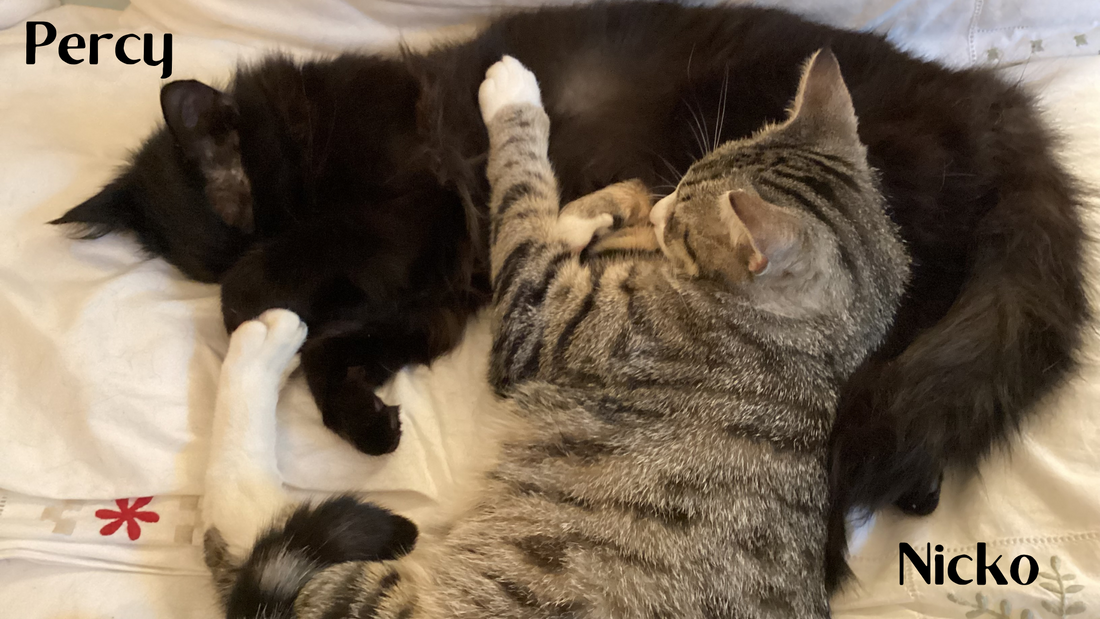
Understanding Cat Grieving: How Cats Mourn and Cope with Loss
Share
This past Saturday, we said goodby to Nicko, our adventurous, chatty, sweet, loving 10 month-old cat. He was too young and full of life to die. He loved climbing trees and exploring around the garden.Throughout my life, I've had many cats, but none have meowed as much and with so many different types of meows as Nicko. No need to say we are all devastated, including his brother Percy, who spent endless days playing and napping with him. Percy seems lost now, he refuses to play and hardly eats, but we hope he will soon be back to being himself (pickles_the.cat)
Losing a beloved pet can be a heartbreaking experience for any pet owner. Just like humans, cats also experience grief and mourning when they lose a companion, whether it's a fellow feline friend or a human family member. In this blog post, we'll delve into the fascinating world of cat grieving, answering some of the most common questions pet owners have about how cats mourn and cope with loss.
How do cats mourn the loss of a companion?
Cats mourn the loss of a companion in various ways, often exhibiting behaviors that may seem unusual or out of character. Some cats may become withdrawn and lethargic, while others may become more vocal or clingy than usual. It's not uncommon for grieving cats to seek out places or items that remind them of their lost companion, such as their favorite sleeping spot or a piece of clothing with their scent.
What are the signs of cat grieving?
Signs of cat grieving can vary from one cat to another, but common signs include decreased appetite, changes in sleep patterns, excessive vocalization, hiding or withdrawal, and decreased interest in play or social interaction. Some cats may also display symptoms of stress or anxiety, such as over-grooming or destructive behavior.
How can I help a grieving cat cope?
Providing comfort and support is crucial for helping a grieving cat cope with loss. Allow your cat to express their grief in their own way, whether it's through seeking extra attention or spending time alone. Keep your cat's routine as consistent as possible and provide plenty of opportunities for mental and physical stimulation. Offering extra cuddles, treats, and interactive play sessions can also help reassure your cat during this difficult time.
Do cats understand death?
While cats may not have the same level of understanding of death as humans do, they are capable of experiencing loss and grief. Cats are highly intuitive animals and can pick up on changes in their environment, including the absence of a companion. They may not understand the concept of death in the same way humans do, but they can certainly feel the loss of a loved one.
Do cats mourn the loss of other pets?
Yes, cats can mourn the loss of other pets in the household, whether it's a fellow cat, a dog, or another animal companion. Cats form strong bonds with their animal companions and can experience grief and sadness when one of them passes away. Providing extra love and attention to your grieving cat and allowing them time to adjust to the loss can help them cope with the absence of their companion.
Understanding how cats mourn and cope with loss is essential for providing them with the support and comfort they need during difficult times. By recognizing the signs of cat grieving and offering compassion and understanding, pet owners can help their feline friends navigate the grieving process and eventually find healing and solace. If you have any concerns about your cat's behavior or well-being after the loss of a companion, don't hesitate to consult with your veterinarian for guidance and support.
